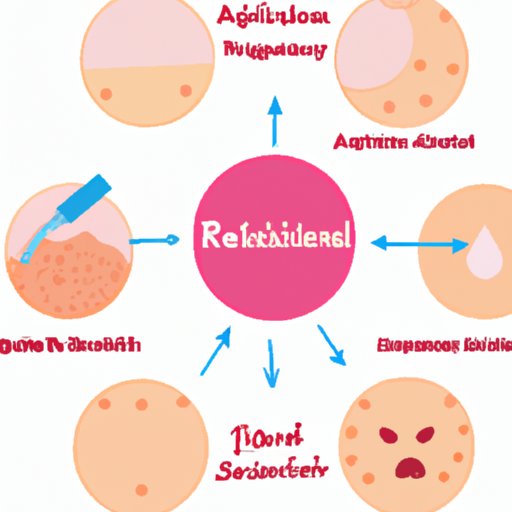Introduction
Acne is one of the most common skin conditions, affecting millions of people around the world. It can range from mild to severe, and can cause physical and emotional distress. Fortunately, there are a number of treatments available for acne, including topical creams, oral medications, and light therapies. One such treatment is retinoid therapy, a type of medication that has been proven to be effective in treating acne.
But what exactly are retinoids? How do they work? What are the benefits and risks associated with using them? In this article, we’ll take a closer look at retinoids and their role in treating acne.
Definition of Retinoids
Retinoids are a group of compounds derived from vitamin A. They are naturally occurring substances found in many plants and animals, and they have been used in the treatment of various skin disorders since the 1970s. Retinoids come in many forms, including creams, gels, lotions, and pills. They are available over-the-counter or by prescription.

Overview of Acne and its Symptoms
Acne is a skin condition that causes pimples, blackheads, whiteheads, and other lesion-like formations on the face, neck, chest, back, and shoulders. It is caused by an overproduction of oil in the pores, which leads to clogged pores and the growth of bacteria. Acne can range from mild to severe and can cause physical and emotional distress.

How Retinoids Work to Reduce Acne Symptoms
Retinoids work by reducing inflammation, unclogging pores, and preventing the formation of new lesions. They also reduce the production of sebum, an oily substance produced by the sebaceous glands that can contribute to blocked pores. Retinoids can also help to even out skin tone and reduce the appearance of scars.
Benefits of Using Retinoids
The main benefit of using retinoids is that it can reduce the symptoms of acne. This includes reducing inflammation, unclogging pores, and preventing the formation of new lesions. In addition, retinoids can also help to even out skin tone, reduce the appearance of scars, and improve overall skin health.
An Introduction to Retinoids and Their Role in Treating Acne
There are several types of retinoids available for acne treatment. These include tretinoin, adapalene, tazarotene, and isotretinoin. Tretinoin and adapalene are available in both prescription and over-the-counter forms, while tazarotene and isotretinoin are only available by prescription. Each type of retinoid works differently, so it’s important to speak to a doctor to determine which type is best for you.
In addition to treating acne, retinoids can also be used to treat other skin conditions, such as wrinkles and sun damage. They can also be used to reduce the appearance of dark spots and discoloration.
Retinoid Therapy: What to Expect During Treatment for Acne
Before beginning retinoid therapy, it’s important to prepare your skin for treatment. This includes cleansing the area with a gentle cleanser, exfoliating to remove dead skin cells, and moisturizing. It’s also important to use sunscreen when using retinoids, as they can make the skin more sensitive to sunlight.
During treatment, it’s important to start slow and gradually increase the strength of the retinoid. It’s also important to use the product consistently, as results may not be seen until after several weeks of use. It’s also important to note that retinoids can cause side effects, such as redness, dryness, and irritation.

The Pros and Cons of Retinoid Use for Acne Treatment
Like any treatment, there are advantages and disadvantages to using retinoids. Some of the advantages include:
- Reduced inflammation and unclogged pores
- Reduced risk of scarring
- Improved skin tone and texture
On the other hand, some of the potential disadvantages of using retinoids include:
- Dryness and irritation of the skin
- Increased sensitivity to sunlight
- Potential long-term side effects
Conclusion
Retinoids are a type of medication used to treat acne and other skin conditions. They work by reducing inflammation, unclogging pores, and preventing the formation of new lesions. While they can be effective in treating acne, it’s important to be aware of the potential side effects and risks associated with using them. It’s also important to speak to a doctor before beginning any form of treatment.
Overall, retinoids can be an effective treatment for acne, but it’s important to weigh the pros and cons before deciding if it’s right for you. If you decide to try retinoid therapy, be sure to follow your doctor’s instructions and use sunscreen regularly.


